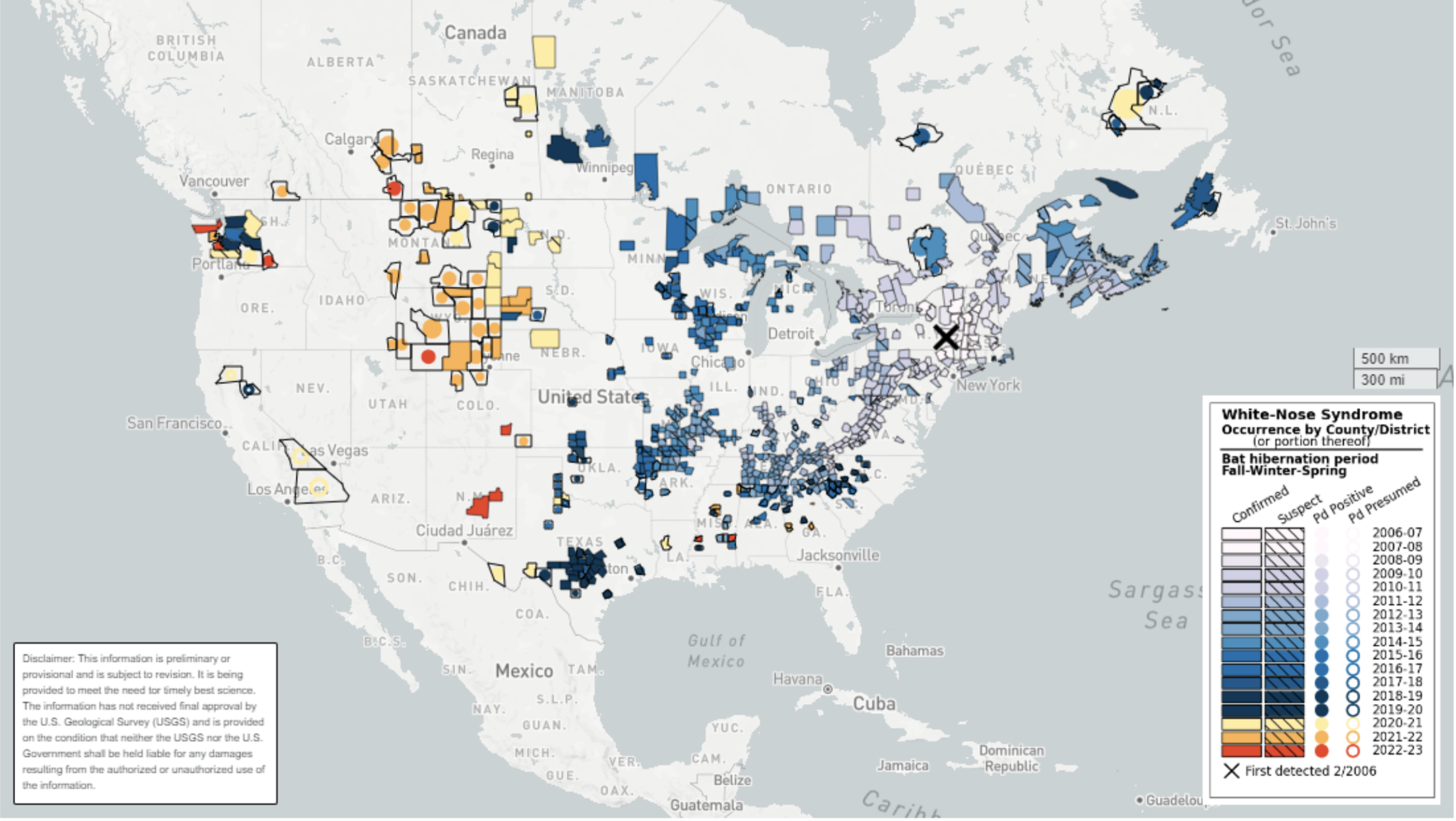Press release: Bats White-Nose Disease
The Denman Hornby Bat Project reminds island communities to be diligent.
Please REPORT any dead bats found before May 31st for White-Nose Disease testing!
White-nose syndrome occurrence map – by year (2024). Downloaded 2024-02-23. Available at https://www.whitenosesyndrome.org/where-is-wns
Sadly, bat researchers are concerned that the arrival of white-nose syndrome (WNS) in BC is imminent. Last year, the fungus that causes WNS was detected in bat feces from Grand Forks, BC. But as of yet, no actual bats with WNS have been found here. This disease, first detected in New York State in 2006, is now in western and central Washington and south-central Alberta. The white-nose disease has killed millions of bats across North America and continues to spread. The public’s assistance is needed to help detect and prevent the further spread of this disease. Residents are urged to report any sick or dead bats found before May 31st.
Seven of our 15 bat species could be severely affected by WNS. In Canada, the Little Brown Myotis (Myotis= Bat) and the Northern Myotis are both listed as Endangered in Canada due to WNS. No proven cure is available yet, but several promising treatment options are in development as researchers work to reduce the effects of this wildlife health crisis.
This fungus does not cause disease in humans and pets but devastates bat populations. It grows on bats' fur while they are hibernating, giving their faces a ‘white nose’. Bats repeatedly wake to clean the fungus from their skin, using up their valuable winter energy stores. They eventually die from starvation.
Of note: All live bats should be left alone — If you have a bat hanging around this winter, please snap a photo and report it to the bat project.
If you must move a bat and need help, you can call the bat project or check on www.bcbats.ca for advice.
Please remember never to touch a bat with your bare hands.
If you or your pet has been in direct contact with a bat, rabies, while very rare is a concern, so please seek assistance from Public Health and/or your veterinarian.
Denman Hornby Bat Project: dhbatproject@gmail.com Phone: 250-335-2151
The BC Bat program is supported by funding from the Habitat Conservation Trust Foundation, the Forest Enhancement Society of BC, the Habitat Stewardship Program, and the Province of BC.
More information is available provincially at www.bcbats.ca
Email: info@bcbats.ca
Phone: 1-855-922-2287
Facebook: https://www.facebook.com/bcbats

